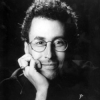Tony Kushner

Tony Kushner
Anthony Robert "Tony" Kushneris an American playwright and screenwriter. He received the Pulitzer Prize for Drama in 1993 for his play Angels in America: A Gay Fantasia on National Themes. He co-authored with Eric Roth the screenplay for the 2005 film Munich, and he wrote the screenplay for the 2012 film Lincoln, both critically acclaimed movies, for which received Academy Award nominations for Best Adapted Screenplay. For his work, he received a National Medal of Arts from President Barack Obama...
NationalityAmerican
ProfessionScreenwriter
Date of Birth16 July 1956
CityNew York City, NY
CountryUnited States of America
The general consensus among historians, among the ones who can handle the fact that 'Lincoln' is, in fact, historical fiction, is that we demonstrate enormous fidelity to history and that, beyond that, we've actually contributed a line of thinking about Lincoln's presidency that's somewhat original.
You don't go to the movies to do historical research, unless it's historical research about the movies.
I go into any movie that's historical fiction thinking, 'OK, I'm here to watch a work of art, something delivering a series of opinions, and if it's a good work of art, these opinions become so deeply embedded in complexity and richness that I won't even be bothered by the opinions. I'll make my own mind up.'
Accuracy is paramount in every detail of a work of history. Here's my rule: Ask yourself, 'Did this thing happen?' If the answer is yes, then it's historical. Then ask, 'Did this thing happen precisely this way?' If the answer is yes, then it's history; if the answer is no, not precisely this way, then it's historical drama.
I've always been drawn to writing historical characters. The best stories are the ones you find in history.
The attack on 'Munich' was not coordinated but it amounted to a real campaign to have a lot of people not see the film and it got mixed up with Oscar issues.
I'm happy that I feel a little less out of place in filmmaking than I once was - but it's almost impossible for a playwright in the U.S. to make a living. You can have a play, like I did with 'Angels,' and it still generates income for me, but it's not enough for me to live on and have health insurance.
What astonishes me about the response to 'Munich' is this angry rejection of the idea that it makes any difference to know what motivates people to do bad things, that you don't need to know why. It is like saying that real men shoot first and ask questions later like in 'Dirty Harry' movies.
The streets of New York are entirely man-made and unmistakably that, so you feel as though you're on some sort of presentation platform whenever you're out on the streets.
My back went out and I gained 40 pounds while sweating over 'Perestroika.' It was incredibly hard, the hardest thing I had to do before the screenplay to 'Lincoln.'
Both shows are a testament to the creative power of human beings,
When really writing I'm not a good friend. Because writing disorganizes the social self, you become atomized. It scrambles you, sometimes to the point that I'm incapable of speech. I feel that if I start speaking, I'll lose the writing, like getting off the treadmill.
The work of artists is to find what's humanly possible - possibility's furthest reaches.
I'm not religious, but I like God and he likes me.